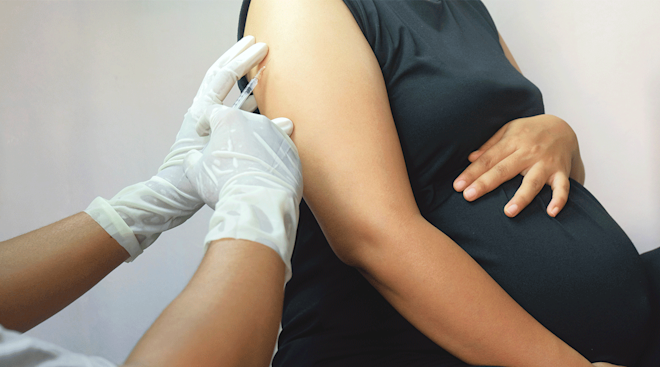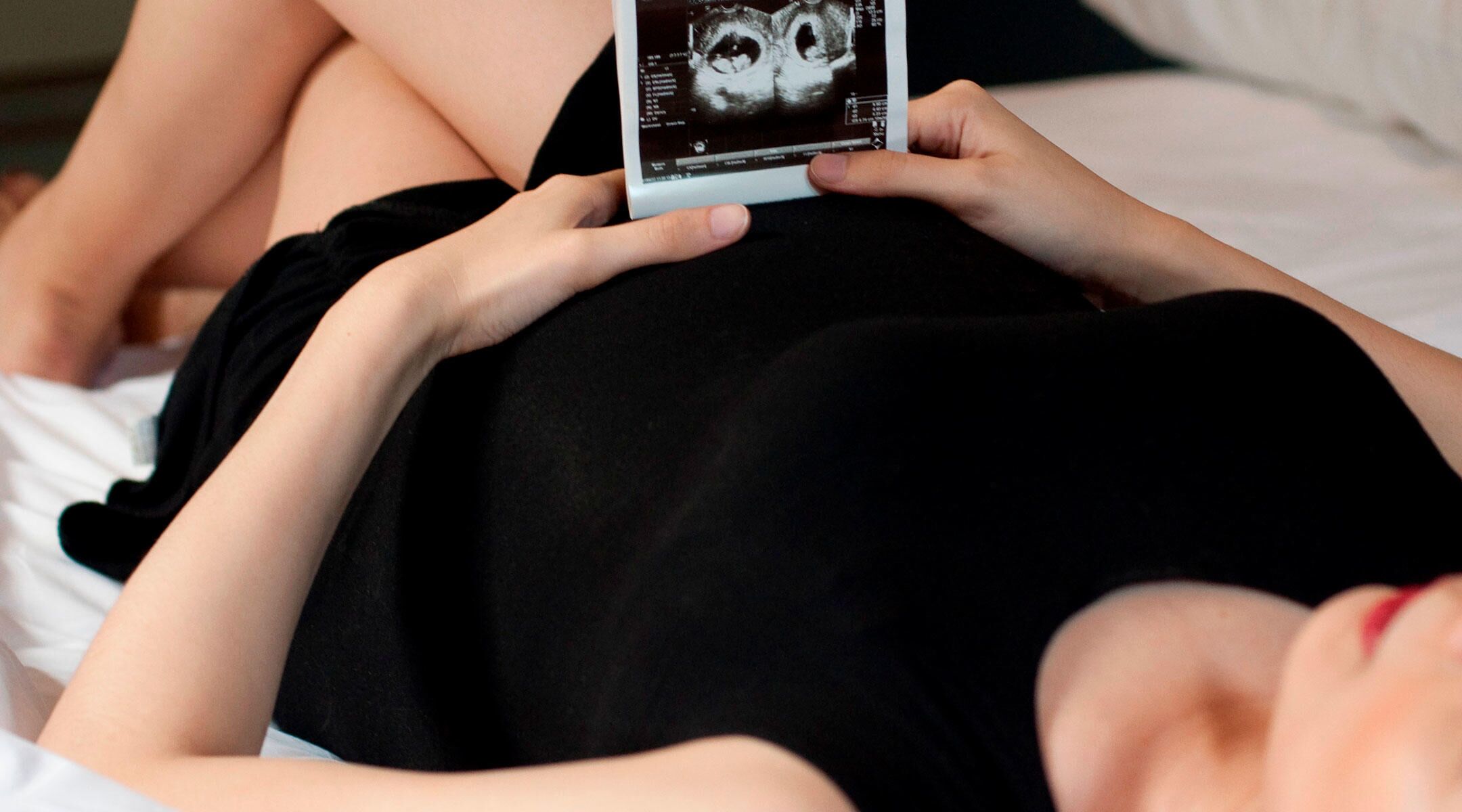Graves' Disease During Pregnancy
What is Graves’ disease during pregnancy?
Graves’ disease describes a constellation of symptoms that affect several parts of your body, most notably the thyroid. Doctors call it an autoimmune disorder, since the body essentially attacks itself (rather than a bacteria or virus). Your thyroid is an important gland, and its job is to make hormones that regulate energy levels. With Graves’ disease, the immune system causes the thyroid to be overactive, making more hormones than you really need (aka hyperthyroid). That, in turn, accelerates every function in your body, from your heart rate to how quickly you digest a hamburger.
What are the signs of Graves’ disease during pregnancy?
There are a wide range of possible symptoms, including a goiter (enlarged thyroid, which is located on the front of your neck), trouble sleeping, hand tremors, a rapid heartbeat, frequent bowel movements, fatigue or muscle weakness, weight loss, irritability and heat sensitivity with increased sweating. In addition, some people develop inflamed tissue behind the eyes, which can cause them to bulge, as well as reddening or thickening of the skin, usually on the shins and the top of the feet.
Are there any tests for Graves’ disease during pregnancy?
Normally, your doctor would administer a blood test that measures thyroid function (whether you’re producing the right range of thyroid hormones) or searches for certain antibodies, but it can be difficult to diagnose Graves’ during pregnancy, since some of the symptoms match what’s naturally taking place in your body because you’re expecting (like fatigue and excess heat). And a more definitive test called a radioactive iodine uptake test (which measures how much iodine the thyroid uses) isn’t safe to give during pregnancy.
How common is Graves’ disease?
Women develop Graves’ disease 5 to 10 times more often than men, and the condition usually first starts in your 20s or 30s. An estimated 30 out of every 100,000 people develop Graves’ each year. It’s not likely that you’ll first develop Graves’ during pregnancy (in fact, symptoms frequently calm down at that point), but it may be discovered for the first time then since you’re already likely undergoing a battery of other tests.
How did I get Graves’ disease?
There’s often a genetic connection, so your mom or grandmother might have also had Graves’ or another autoimmune thyroid disease. Other potential factors include stress and infection.
How will Graves’ disease affect my baby?
Left untreated, Graves’ disease can have serious health consequences for your baby, so it’s important to get the right diagnosis and treatment. Otherwise, she may be at risk for thyroid problems, brain development issues, low birth weight and preterm birth. You may also be at higher risk for preeclampsia, placental abruption or miscarriage. In addition, because Graves’ is an autoimmune disorder, the antibodies that create the condition can travel through the placenta and hurt the baby. Your doctor may measure your antibody levels and closely monitor the baby for any effects.
See Next Page for treatments and resources.
What’s the best way to treat Graves’ disease during pregnancy?
Treatment often depends on when your symptoms occur (usually in the first trimester and third trimester). Your doctor will likely send you to an endocrinologist (a specialist in hormone problems) who will closely monitor your thyroid levels. You may need to take an antithyroid medicine, including propylthiouracil for the first trimester and methimazole for the remainder. You may also be given beta-blockers during the first few weeks to help alleviate symptoms.
What can I do to prevent Graves’ disease?
Unfortunately, like with many autoimmune disorders, there’s not much you can do to prevent it. Talk to your doctor if you have a family history, since she may be able to help you determine early on whether you’re at risk.
What do other pregnant moms do when they have Graves’ disease?
“I have Graves’ disease and had my thyroid removed two years ago. I saw a perinatologist during my pregnancy because of it. They had to monitor my son for both hypothyroidism and hyperthyroidism. Luckily, everything always looked good.”
“I have Graves’ ophthalmology hyperthyroidism. I get blood tests and an ultrasound every four weeks to check my levels and watch baby’s growth. Thus far she’s right on track with growth and there’s no sign of a goiter.”
“About a year ago, my doctor found a nodule in my thyroid. So I have tons of little cysts, but they’re small and not a concern right now. I’ll get them looked at once a year or so just to make sure there’s no major growth. As for the pregnancy, so far it hasn’t been an issue. I get blood work done, and it’s all tested fine so far…just keeping active and eating well.”
Are there any other resources for Graves’ disease?
Please note: The Bump and the materials and information it contains are not intended to, and do not constitute, medical or other health advice or diagnosis and should not be used as such. You should always consult with a qualified physician or health professional about your specific circumstances.
Plus, more from The Bump:
Navigate forward to interact with the calendar and select a date. Press the question mark key to get the keyboard shortcuts for changing dates.


















































